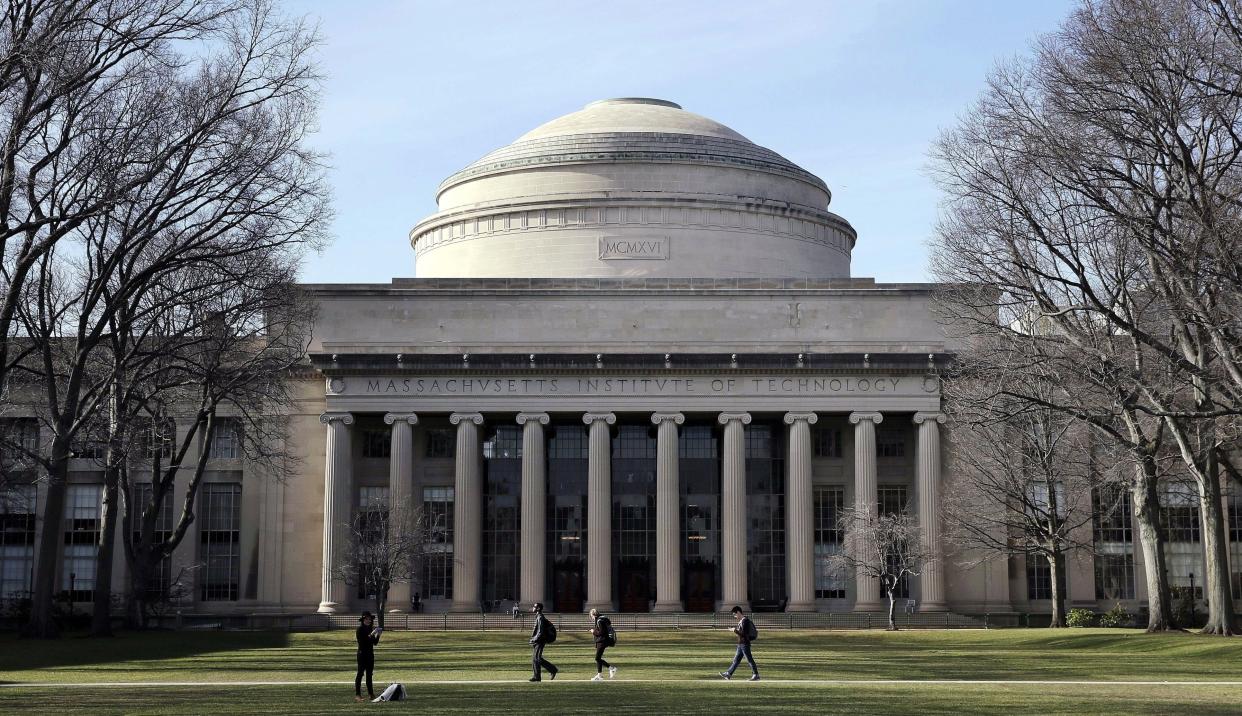Court may pare back secrecy in campus sexual misconduct suits

A federal appeals court in Boston heard arguments on Wednesday in a case that could make it harder for students to maintain their anonymity when suing colleges over the handling of complaints related to sexual misconduct.
Lawyers for the Massachusetts Institute of Technology and a former computer engineering student at the prestigious school squared off over a lower-court judge’s denial of the former student’s request that he be allowed to proceed as “John Doe” in the case and that the fellow student who accused him of misconduct also be identified by a pseudonym in court filings.
Attorney Philip Byler told the 1st U.S. Circuit Court of Appeals that the ruling from U.S. District Court Judge Richard Stearns requiring that the plaintiff either file under his true name or dismiss the suit was unfair and contrary to the custom in such cases.
“This is the standard practice in the field,” Byler told the three-judge panel. “I think we’re all flabbergasted by what the district judge wrote here.”
A ruling declining to disturb Stearns’ decision stripping secrecy from the case could discourage some suits against colleges and universities over their campus discipline processes, particularly in cases involving allegations of sexual misconduct or sexual assault.
The suit that led to Wednesday’s arguments was filed last year after MIT kicked out a male student accused of having sexual intercourse with a former girlfriend while she was asleep. The school also found the male student engaged in sexual harassment of the same woman, but the breach-of-contract suit alleges that the investigation and the process were severely biased.
Byler said the tradition of allowing parties to proceed by pseudonyms in litigation involving intimate matters goes back decades.
“Roe v Wade has been in the news,” he observed. “That is a case where pseudonymity was recognized.”
However, 1st Circuit Judge Bruce Selya noted that many sorts of litigation involve sensitive personal matters, but typically proceed with parties using their real names.
“What you’re just said is true of many types of litigation,” the judge said to Byler. “Every time you file a personal injury case you reveal personal information.”
But Byler said his client’s career as a software engineer would be upended if his name were published.
“Anybody who thinks that if you’re identified with a sexual misconduct finding that that’s not going to hurt you, they are totally mistaken,” he said, adding that strong lawsuits would likely never be filed if doing so meant going public. “Without the pseudonymous status, many people would not bring the lawsuits … He’s got a meritorious case. He should not be denied his MIT degree. That’s what is at stake here. He was just a few weeks away from graduation.”
MIT lawyer Scott Roberts said lawyers for the student suing in the case at issue simply failed to show that he would face the sort of severe harm that would justify secrecy.
“Granting pseudonymous status is exceptional,” Roberts said. ”It presents a very high bar and it was not cleared here.”
Selya pressed the MIT attorney on why the usual confidentiality of campus discipline proceedings should be tossed aside because someone involved decides to go to court.
“Why should that confidentiality be destroyed because one party to that proceeding believes that his rights have not been honored? … Why should he be forced to vindicate that point on pain of sacrificing the anonymity?” asked the judge, an appointee of President Ronald Reagan.
Roberts said the suit “calls out” MIT Chancellor Melissa Nobles by name three times and accuses the school of being in the grip of “radical feminists.”
“That is simply not the case,” the MIT attorney said. “It’s fundamentally unfair to allow a plaintiff to make serious allegations in court without standing as they must in the public forum.”
But Selya seemed suspicious about MIT’s motivations for seeking to expose its opponent in the suit.
“What is the prejudice to MIT? Why are you fighting this motion so hard?” he said. “Is it a tit-for-tat sort of thing?”
In response to a question from Judge Rogeriee Thompson, an appointee of President Barack Obama, Roberts said MIT would not oppose anonymity in all cases and might agree to it if a student faced unusual harm from disclosure of his or her identity.
“It’s not a blanket rule,” he said, adding that immigration status might be a legitimate reason for secrecy.
Judge Gustavo Gelpí, an appointee of President Joe Biden, noted that the student who brought the suit never offered any specific facts about the impacts of anonymity in his case.
The appeals judges issued no immediate ruling, but they seemed unlikely to overturn Stearns’ decision outright. There was some discussion by the judges of allowing the plaintiff to take another run at requesting secrecy in the case by submitting more details of the potential impact of publicity.
The outcome of the case could be affected by a decision the 1st Circuit issued earlier this month in litigation involving Maine state employees protesting that state’s coronavirus vaccination requirements. There, the appeals court rebuffed a request from employees with religious objections to proceed without using their names.
Looking at cases across the country, Judge Sandra Lynch found a “strong presumption against the use of pseudonyms in civil litigation.”
However, some lawyers who represent alleged victims in campus sexual misconduct cases are backing the accused student’s position, arguing that the victims might also be identified publicly or be ordered released if the accused’s name cannot be kept under wraps.

